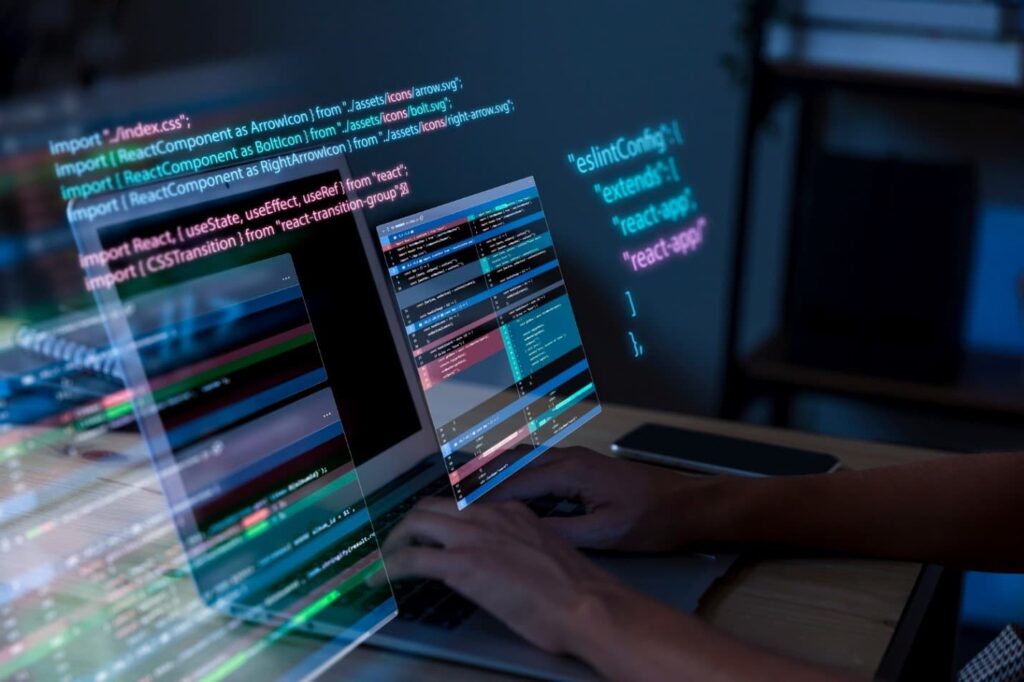Are you eager to explore the exhilarating realm of programming simply for the pure pleasure it brings? Programming isn’t just a tool for building software; it can be a tremendously enjoyable hobby. In this guide, we’ll explore how to get started with programming for fun, whether you’re a complete beginner or someone with some coding experience looking to branch out into more enjoyable projects.
Why Program for Fun?
- Unlocking Creativity: Programming offers a unique canvas for your creativity. Whether you want to create games, art, or interactive stories, coding lets you bring your imagination to life. It’s like being an artist with a digital brush and an infinite palette of colors.
- Problem Solving and Puzzles: Do you love solving puzzles or brain teasers Programming is solving puzzles with code. It challenges your problem-solving skills and keeps your mind sharp as you work through complex issues.
- Joining a Community: Engaging in programming for enjoyment also entails becoming part of a lively and encouraging community of individuals who share similar interests. Within this community, you can share your creations, solicit guidance, and collaborate on thrilling projects with people from all around the globe.
Choosing Your First Language
When you’re taking your first steps in programming, the array of programming languages available can be quite daunting. Here are a few novice-friendly options to contemplate:
- Python: Python is often recommended for beginners due to its simple and readable syntax. It’s an excellent choice for various applications, from web development to data analysis and game development, using libraries like Pygame.
- JavaScript: If you’re interested in web development and want to build interactive websites and web apps, JavaScript is the way to go. It’s a versatile language that’s widely used on the web.
- Scratch: For younger beginners or those who prefer a visual approach, Scratch is an excellent choice. It’s a block-based programming language designed for kids but fun for all ages.
Learning Resources
Once you’ve picked a language, it’s time to start learning. Fortunately, there are abundant resources available to help you on your programming journey:
- Online Tutorials and Courses: Websites like Codecademy, Coursera, and edX offer many courses for beginners. These platforms provide structured lessons and interactive coding exercises to help you grasp the basics.
- Books: There are countless programming books tailored to beginners. Look for titles that match your chosen programming language, and you’ll find step-by-step guides and hands-on examples.
- YouTube: YouTube is a treasure trove of programming tutorials and walkthroughs. Channels like “The Net Ninja” and “Traversy Media” offer high-quality video content for beginners.
Start Small, Dream Big
As you begin your programming journey, remember that starting small is perfectly okay. Your first programs don’t have to be groundbreaking; they must be enjoyable. Here are some small projects to consider:
- Hello World!: The classic “Hello World” program is a rite of passage for every programmer. It’s a simple script that displays “Hello, World!” on your screen. This tiny project introduces you to the basics of writing and running code.
- Guess the Number: Create a game where the computer generates a random number, and the player must guess it. This project will teach you about user input, conditionals, and loops.
- Personal Website: If you’re learning web development, design a website. Share your interests, showcase your projects, and experiment with HTML, CSS, and JavaScript to make it interactive.
Collaborate and Share
Programming for fun becomes even more enjoyable when collaborating with others and sharing your work. Here’s how:
- GitHub: GitHub is a platform where programmers collaborate on open-source projects. You have the opportunity to participate in existing projects or initiate your own. This is an excellent method to gain knowledge from seasoned developers and make valuable contributions to the coding community.
- Online Communities: Join communities like Stack Overflow, Reddit’s programming subreddits, or Discord servers related to your chosen programming language or project. These communities are full of enthusiasts eager to help and share knowledge.

Embrace Challenges
Challenges are an integral part of programming for fun. They push you to expand your skills and think creatively. Here are some challenging ideas to keep things exciting:
- Code Golf: Code golf is a competition to write the shortest, most concise code to solve a particular problem. It’s fun to hone your coding skills and discover new tricks.
- Project Euler: Project Euler offers a series of challenging mathematical problems requiring programming. It’s perfect for those who enjoy combining math with coding.
Never Stop Learning
The world of programming is vast and ever-evolving. As you continue to program for fun, remember to keep learning. Explore new technologies, languages, and tools to expand your horizons.
Conclusion
Programming for fun can be a deeply rewarding and enjoyable hobby. It allows you to express your creativity, tackle puzzles, and connect with a global community of like-minded individuals. Whether you’re just starting or have some coding experience, the key is choosing a language, learning the basics, starting small, collaborating, embracing challenges, and never learning. So, what are you waiting for? Dive into the world of programming and unleash your creativity!